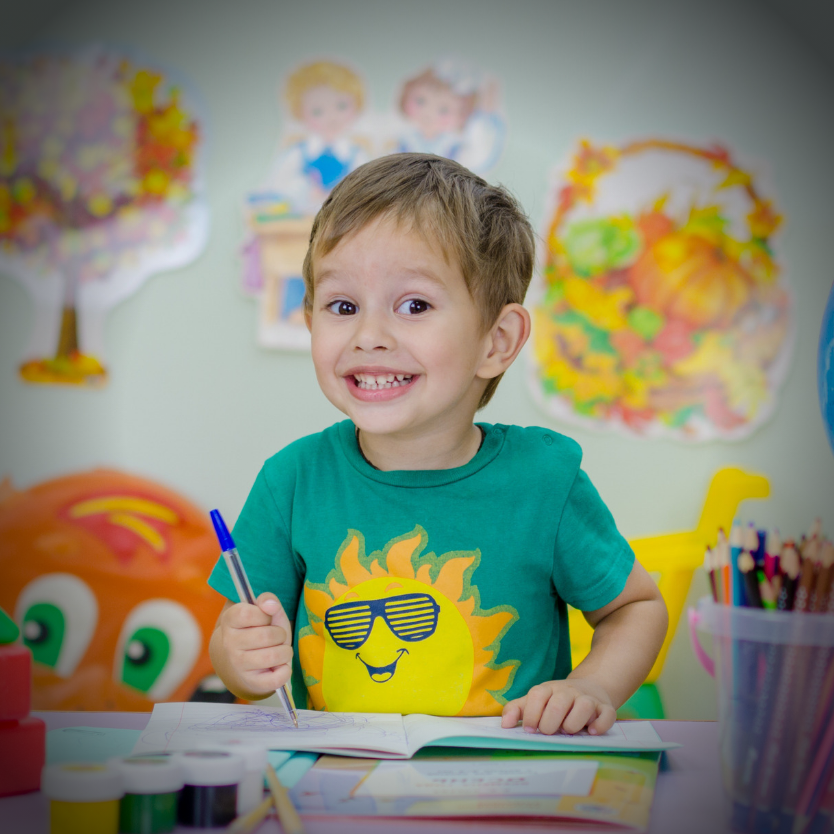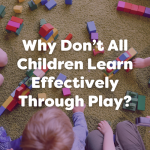This article has been written by Ellie Collar from Early Years SEN. Ellie has worked as both a Special School teacher and an Early Years SEN advisor for a Local Authority. Her particular interest is in the role of strong early development as the most important foundation for successful and confident formal learning. She also works regularly with an inclusive children’s sensory theatre company.
As an early years person, when I work with primary aged children struggling with their attention, impulse control or their handwriting, they almost always show insecure gaps in their early development that weren’t successfully filled in their early years.
Their development is working like a jenga tower. No matter how excellent a teacher is, as they go on balancing carefully taught formal learning on top, the structure beneath is full of holes. It’s all a bit shaky, and it can come crashing down. This is what inevitably leads to the distressed phone calls from parents whose child was sobbing at breakfast: ‘I don’t want to go to school any more’.
Early Years professionals want their children to be happy at school. We want them to be successful at school and to enjoy the transition from play to formal learning. Therefore spending those foundation years in helping their development become strong, and for the child to be ready for the experiences that will come as they start to read and write, becomes really important. And how are early stages of development built and consolidated, regardless of the age of the child?
Through play.
Through active, physical, fun, exploratory based play. Not pencils and worksheets and drilling, but play. Particularly play that builds the key physical skills for nervous system and brain maturity. Physical development underpins almost every learning skill your child will ever need when they go to school.

Some of the most important physical play skills ever built in mark making play (without pencils) include eye tracking, crossing the midline, balance, pattern recognition, focused attention, core stability, impulse control and working memory. All of these are a part of strong physical development. All of these are equally crucial for developing strong behaviour and emotional skills including emotional regulation, and later on these are the foundations for reading, writing, spelling and number sense.
So, every time you:
- Play with the cars in the sand, following roads and paths, or draw in mud with sticks or chalk pictures on the ground
- Play a simple board game (yes, this is pre writing too!)
- Chase and pop bubbles
- Use a range of positions, including crawling, kneeling and laying on the tummy to play or join in activities
- Sing, dance or use rhythm in a group
- Play with skittles and marble runs
You are building your child’s real readiness to be successful in school with their writing later on, and with their emotional and behaviour skills too. Play = hard core learning.
If you would like to:
- Know more about these connections and what these play activities teach to brain, body and concepts that make them so important
- Find out how you can spot some key assessment signs of young children who need support in these areas, especially crossing the midline, eye tracking, memory and core strength, and their importance for children who struggle with marking making or with their behaviour
- Take away resources and lots of ideas of what to play that is fun and motivating and powerful in helping children build these strong skills, particularly your more vulnerable children
- Know some key ways to help reception aged children who are not yet ready to write or are struggling with early letter formation
Then join me, Ellie Collar on the 18th March 2020 in Manchester for ‘Exploring Executive Function‘. Learn more and book.




